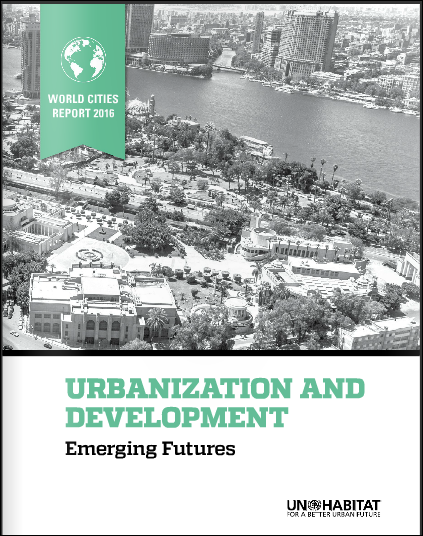World Cities Report 2016: Urbanization and Development: Emerging Futures
World Cities Report 2016: Urbanization and Development: Emerging Futures
Summary
The United Nations Human Settlements Programme (UN-Habitat) started in 1976 with the UN Conference on Human Settlements in Vancouver, Canada, at a time when the governments began seriously to perceive the cities under their jurisdictions as “emerging futures” in their own right. Opening the event, Canadian Prime Minister Pierre Elliott Trudeau aptly summarized the worldwide (and ongoing) challenge as follows: “Human settlements are linked so closely to existence itself, represent such a concrete and widespread reality, are so complex and demanding, so laden with questions of rights and desires, with needs and aspirations, so racked with injustices and deficiencies, that the subject cannot be approached with the leisurely detachment of the solitary theoretician.” Urbanization as a Transformative Force Tracking the last twenty years of development reveals a global transformation that positions cities at the core of the development agenda. Urbanization is indeed one of the most significant trends of the past and present century, providing the foundation and momentum for global change. The shift towards an increasingly urbanized world constitutes a transformative force which can be harnessed for a more sustainable development trajectory, with cities taking the lead to address many of the global challenges of the 21st century, including poverty, inequality, unemployment, environmental degradation, and climate change. Cities have become a positive and potent force for addressing sustainable economic growth, development and prosperity, and for driving innovation, consumption and investment in both developed and developing countries. This dramatic shift towards urban life has profound implications for energy consumption, politics, food security and human progress. Although some of this change is positive, poorly planned urbanization can potentially generate economic disorder, congestion, pollution and civil unrest.Author/Editor
Year
2016
Themes
Strategy & Planning
Sustainable Development Goals
Goal 11 - Make cities and human settlements inclusive, safe, resilient and sustainable
